More droughts in Europe?
9 January 2014
Italian scientist Giovanni Forzieri and his team of researchers have predicted more extreme weather in the next few decades. They say that drought (an extended period of dry weather with little or no rain) could happen more often and become more severe. The climate is changing and the planet is getting warmer. Giovanni and his team are trying to understand if a rise in global average temperature along with an increase in the use of water across Europe – for farming, industry and daily use by a growing population – could have an impact on drought. Higher temperatures would cause more evaporation; as a consequence, less water would be available for the population. This issue is very important, as water is necessary to all living creatures and drought has cost Europe over €100 billion in the past 30 years. Giovanni and his team have used computer models to try to figure out what will happen to rivers across Europe up until the year 2100. Their results depend on how much the temperature across the continent will increase and on how much water we will use in the future. The researchers found that, due to climate change alone, the amount of water flowing in streams and rivers could be reduced down to almost half the current levels, particularly those in Southern Europe. Adding excessive use of water by humans to future climate warming means that droughts are likely to be a lot worse in the next century or so. The team warns that periods with severe water shortages might be much more frequent and long-lasting in the future. Giovanni says that the results of this study show that it is important for people to know how to use water without wasting it, and that governments need to take climate change into account when planning rules for the use of water.Print version
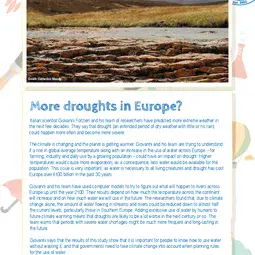
This is a kids' version of the EGU article: 'More droughts in Europe?'. It was written by Jane Robb and reviewed for scientific content by Sam Illingworth and Alice Aubert and for educational content by Maria Vittoria Barbarulo.
Translations
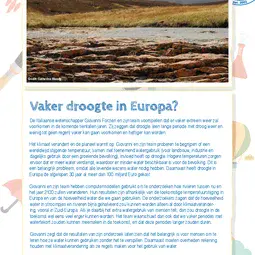
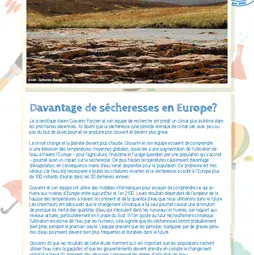
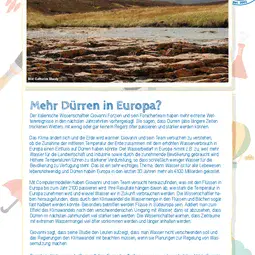
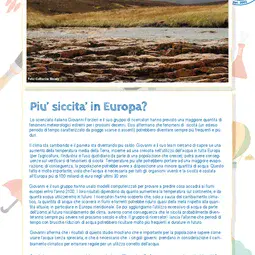
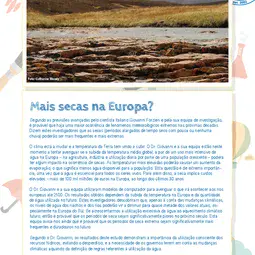
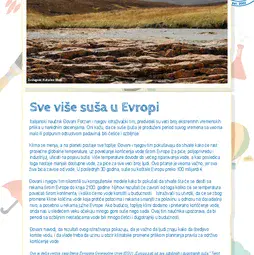
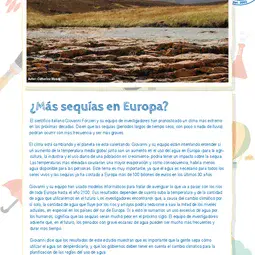
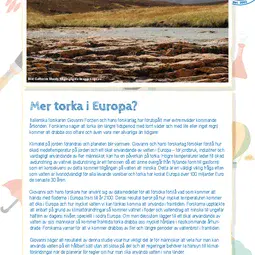
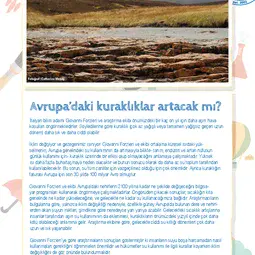
All English-language Planet Press releases are carefully edited, reviewed and proofed, by scientists, educators and EGU staff. Please note that once translated, Planet Press releases receive no further checks from EGU staff. For this reason, we cannot guarantee their accuracy, though we trust the quality of our voluntary translators and are grateful for their work.

